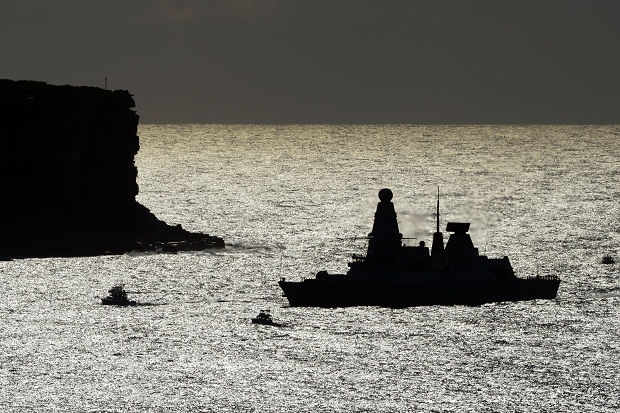Nato is 65 years old this year; but there’s little cause for celebration. The Defence Select Committee’s latest report suggests that the populations of western Europe and North America are lukewarm about Nato’s collective defence guarantee – the principle that an attack on one Nato member is an attack on all. Paragraph 70 quotes research conducted in the aftermath of Vladimir Putin’s invasion of Georgia in 2008; it found that less than 50 per cent of the populations of major Nato powers would support the defence of the Baltic States if they were attacked.
The report explains that the substantial Russian minorities in Latvia and Estonia, under the influence of invasive Russian media, are vulnerable to ‘information warfare’ and of ‘inciting disturbances that have caused such chaos in Ukraine.’ The report also notes that Lithuania is strategically attractive to Russia, as it would allow the Russian enclave at Kaliningrad to be linked to mainland Russia through Belarus. The Baltic States fear that their citizens have been the target of Russian information campaigns. There appears to be a receptive audience among the minorities: local polls found that 43 per cent of Russian speakers in Latvia back Putin’s annexation of Crimea.
Nato has concocted a plan to deter Russian mischief. Earlier this month, the then Defence Secretary Philip Hammond told the Defence Select Committee that Britain would contribute to Nato plans for a ‘more enduring pattern of exercises in the Baltic States and Poland, and the Baltic itself’. These exercises have been ongoing since March, when Putin was busying himself with Crimea. The latest operation, Black Eagle, includes a contingent of more than 3,500 British personnel and 350 armoured vehicles and tanks. There is also a considerable air force in the region, to which Britain has contributed a number of Typhoons.
The aim of these exercises is to establish a permanent presence in eastern Europe without resorting to a costly permanent establishment. Sources in the Ministry of Defence and the army say that there is no strategic reason to found a ‘British Army of the Vistula’ to match the ‘Army of the Rhine’ of yesteryear – an indication that the present Russian threat is small. A series of rolling exercises is adequate, so the thinking goes, to deter any Russian incursion (be it conventional or asymmetric), and to keep Nato in a state of readiness.
These exercises also serve a broader political purpose. The era of fiscal restraint, combined with war-weariness following the wars in Afghanistan and elsewhere, has diminished Nato. Philip Hammond bemoaned this in a speech to the Atlantic Council in 2012:
‘Afghanistan and Libya have shown that the alliance as a whole, and the contributions of some of its members, fall short of what our collective defence requires – in terms of capability, in terms of the balance of contribution and in terms of the will to deploy.’
Yesterday, the new defence secretary, Michael Fallon, reiterated the point, and argued that Nato’s reluctant members must pull their weight by committing to spend 2 per cent of GDP on defence (the alliance’s basic requirement).
Britain’s stance is underpinned by the belief that collective defence is, to quote Hammond, ‘the only practical response to the world we live in’. The government has come to see that the principle needs to be revived among Nato’s members – among both their politicians and publics. The logic is that collective defence works but it can only work if it is truly collective. Nato exercises in eastern Europe are part of this effort, which is why they are being so widely publicised. (They may, of course, succumb to the law of unintended consequences by exposing the gulf in tactical expertise and operational capability between Nato nations, which could entrench differences.)
On the domestic front, the stated positions of Philip Hammond and now Michael Fallon make it a near certainty that the Conservatives will, eventually, commit to meet the 2 per cent spending requirement in the next parliament. Will that commitment appear in the manifesto? One would expect so.






Comments